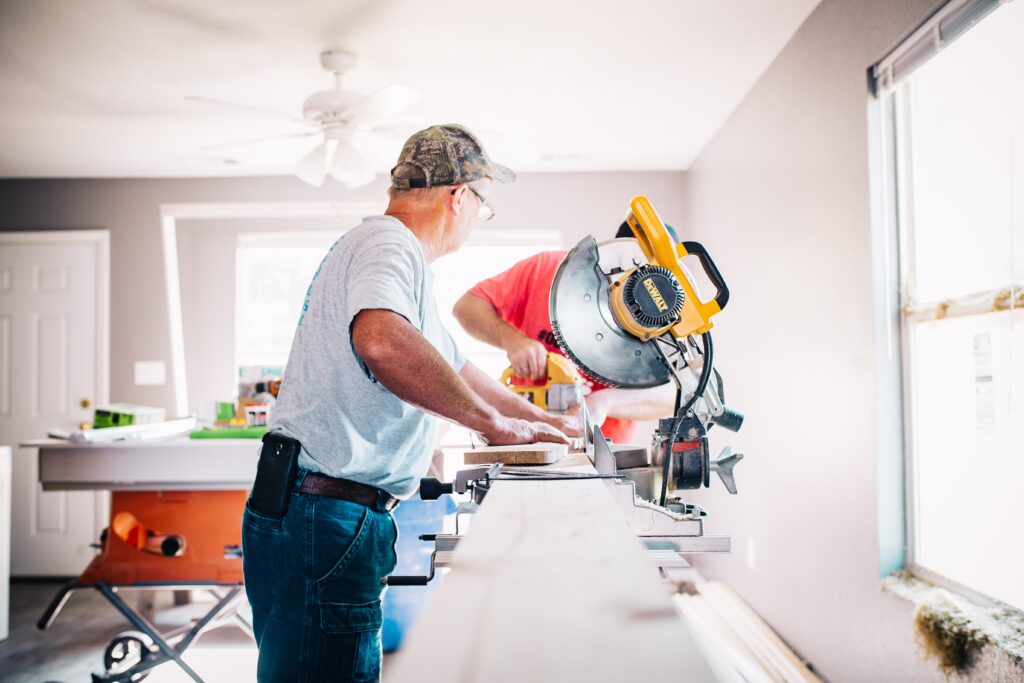Home improvement during the Covid-19 pandemic has been quite challenging. If you want to save money nonetheless, this article is for you. One way you can do that is by making home improvements without breaking the bank. We’ve compiled a list of 10 strategies for saving money while improving your home from the pandemic lessons.
#01 DO IT YOURSELF
DIY is a great way to save money on home improvements. There are many online tutorials that can walk you through even the most complicated projects. Just be sure to research thoroughly and take your time before starting any project.
#02 MASTER PROJECT DETAILS
Be sure you know what you’re doing before beginning any home improvement project. This means taking the time to learn about all the details involved in each step of the project. For example, if you’re installing a new front door, find out the type of weatherproofing sealant that should be used to protect it from rain and other elements.
#03 GO GREEN
One of the best ways to save money on home improvements is to go green. You can save on energy costs by making your home more energy-efficient. Some simple tips include installing insulation, sealing leaks, and upgrading to energy-efficient appliances. Do not be discouraged by upfront cost. Green projects pay off eventually.
#04 SHOP AROUND
It’s important to shop around for all your home improvement supplies so you can get the best price possible. You may even want to order materials online in bulk when they go on sale, rather than purchasing them one at a time when you need them. This will help cut down on storage costs as well as shipping expenses later on down the road!
#05 CONSIDER BOTH SHORT TERM AND LONG-TERM EXPENSES
When calculating how much money is needed for each project, don’t forget to consider both short-term (immediate) and long-term (future) expenses. For example, if you’re considering installing a new roof, the short-term expense would be the materials and labor costs, while the long-term expense would be reduced energy costs from having a more efficient roof.
#06 INCREASE EFFICIENCY
Another great way to save money on home improvements is to increase efficiency. Do not look at the number of jobs ahead of you alone. Implementation efficiency will help you save money and time. This goes back to proper planning.
#07 USE RECYCLED MATERIALS
When possible, try using recycled materials for your home improvement projects. Not only will this save you money, but it will also help reduce waste going into landfills. You can find many recycled building materials at online retailers and even some home improvement stores.
#08 WAIT FOR THE RIGHT TIME TO NEGOTIATE WITH THE CONTRACTOR
Many people tend to jump the gun when it comes to negotiating with contractors for their projects. It’s important that you wait until the right time before making any final offers, such as asking them if they can do a certain project for less money or offering incentives like paying in cash. Avoid negotiating when there are many construction projects going on. Wait until the table is turned around, and they are willing to give a discount for the job.
#09 CONSULT AN ARCHITECT
The best way to save on home improvements is by consulting an architect first about your plans. This ensures that all of your ideas will be safe and sound. You will have accurate bills of quantity and know exactly how much everything will cost. The worst part of any project, when you run out of money midway.
#10 IS IT WORTH REPAIRING?
Not all home improvements are worth the money. Sometimes it’s best to just bite the bullet and replace a broken appliance or window instead of trying to repair it. This is especially true if the repair will only last for a short period of time or require more repairs in the future. By weighing all your options, you can make the best decision possible for your wallet and your home!
This argument holds for major repairs as well. Calculate the cost of the project and the valuation of your home. You may be better off selling your home and moving into a new house. Don’t do the major repair before conducting this cost-benefit analysis.
Thanks for reading! I hope these tips will help you save money on your next home improvement project. Remember to weigh all of your options before making a final decision, and don’t be afraid to consult an architect or contractor if needed. Happy renovating!



